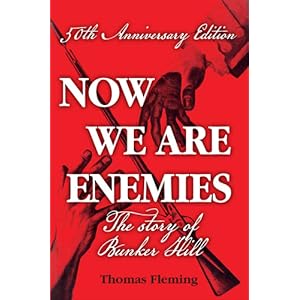Channelling George Washington: Thanksgiving with Abe

“With Thanksgiving on the way, I’ve been thinking of other times when America has celebrated that great day. What do you think is the most memorable?”
“I don’t have your powers of recall. I remember how Americans celebrated in England in 1942. That was pretty memorable.”
“I remember that one. It was very well done. Instead of feasting on the Turkeys and fixings that the U.S. shipped them through the German submarine blockade, the soldiers and sailors gave it all to the English poor and two or three thousand went to a ceremony in Westminster Cathedral.”
“I wasn’t there but I read all about it.”
“My favorite is Abe Lincoln’s celebration.”
“What year was that?”
“1863. It’s a great story. Thanksgiving as a national celebration had sort of lapsed. New Englanders still celebrated it but it didn’t travel to other parts of the country.”
“Didn’t you proclaim it when you were president?”
“In 1789. My first year in office. I always thought it was a wonderful opportunity for the country as a whole to thank the Creator for his blessings. In 1789 we had reason to be very grateful for the successful achievement of a government that would preserve our hard-won independence.”
“Did your successor John Adams—a New Englander—continue the custom?”
“Johnny leaned over backward to avoid imposing New England customs on the other states. He knew Yankees weren't popular in a lot of states. Then came President Jefferson. He thought presidential proclamations were too king-like and refused to make one on any subject. Pretty soon Thanksgiving had dwindled to a quaint local custom. It took a woman to do something about this unfortunately lapse.”
“A woman president?”
“Sarah Josepha Hale had the drive and energy to be president of a lot of things, including the country. But women didn’t even have the right to vote when she went to work on reviving Thanksgiving.”
“Isn’t she the author of 'Mary Had a Little Lamb'?”
“She also wrote bestselling novels and edited the most successful magazine in the country, Godey’s Lady’s Book while managing to raise five kids without a husband. He died early in their marriage.”
“When did she go to work on reviving Thanksgiving?”
“Early in the game, in 1827. In her novel Northwood she had a character say Thanksgiving was as American as the Fourth of July and should be a national festival. In almost every novel thereafter, she devoted a whole chapter to a New England Thanksgiving dinner. But not much happened for the first ten years of her campaign.”
“What changed things?”
“She became editor of Godey’s in 1837. She moved to Philadelphia to handle the job and was outraged to discover Thanksgiving was totally ignored in the City of Brotherly Love. Pretty soon Godey’s was carrying impassioned editorials about the importance of Thanksgiving. She published lip-smacking recipes for dishes like Indian Pudding with Frumenty Sauce.”
“Did she get into politics too?”
“She wrote hundreds of letters to mayors, governors, senators, congressmen and presidents urging the importance of a national Thanksgiving Day. Not even the nation’s drift toward a civil war over when and how to free the slaves stopped her. In November 1859 she called for every state to join in celebrating Thanksgiving Day with a renewed pledge of loyalty to the Constitution of the United States.”
“Did the outbreak of the war discourage her?”
“Not at all. In 1861, when the blood began to spill, she again urged everyone to make Thanksgiving a national day that might “heal sectional feelings.” In 1863 she made the same suggestion. A lot of people scoffed and some dismissed her as a crazy woman. That year had seen the awful bloodshed at Gettysburg and almost many young men lost in other battles such as Vicksburg. But one man took her plea seriously.”
“Who was this unusual fellow?”
“Abe Lincoln. He told me that when he read Sarah Josepha Hale’s words, something stirred deep in his soul. A voice whispered: Why not? He sat down and wrote the greatest Thanksgiving Proclamation by an American president. I think it’s worth rereading today, with our country embroiled in another war.”
“Give it to us, word for word.”
“The year that is drawing toward its close has been filled with the blessings of fruitful fields and beautiful skies…In the midst of a Civil War of unequaled magnitude and severity, peace has been preserved with all nations, order has been maintained, the laws have been respected and obeyed and harmony has prevailed everywhere except in the theater of military conflict; while that theater has been greatly contracted by the advancing armies and navies of the Union.
“Needful diversions of wealth and strength from the fields of peaceful industry have not arrested the plow, the shuttle or the ship; the ax has enlarged the borders of our settlements and the mines, as well of iron and coal and of the more precious metals, have yielded even more abundantly than heretofore. Population has steadily increased, notwithstanding the waste that has been made in the camp, the siege and the battlefield, and the country, rejoicing in the consciousness of augmented strength and vigor, is permitted to expect continuance of years with large increase of freedom.
“No human counsel hath devised nor hath any mortal hand worked out these great things. They are the most gracious gift of the most High God, who while dealing with us in anger for our sins, hath nevertheless remembered us in mercy….”
“Three cheers for Sarah Josepha Hale.”
“And three more for Abe.”